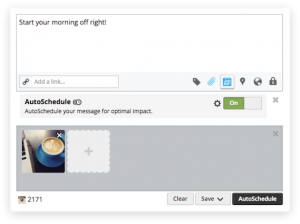AdWords audits are a great way to win business and check on the health of an account, but columnist Matt Umbro notes that there are some aspects of an audit that are easily overlooked or underexplored. Don’t make these mistakes!

Auditing a prospective client’s Google AdWords account is a tried-and-true sales tactic when hoping to win business. By reviewing accounts, missed opportunities may be found, while issues with campaign structure, settings and optimizations can be addressed. Many agencies have checklists and/or specific areas they review when auditing accounts. However, as AdWords becomes more complex and new features are released, the traditional audit doesn’t cut it anymore.
In this post, I’ll address areas that are often neglected or not given enough thought when auditing AdWords accounts. Some are more technical than others, but the theme is that one size doesn’t fit all. Too often, our preconceived notions don’t allow us to view accounts in a different light. Understand and be open to how accounts are set up as you conduct your audits.
Here are four common issues marketers run into when auditing AdWords accounts:
1. Misunderstanding conversion tracking
One of the first items to be reviewed is how conversion tracking is set up. After all, conversion metrics tend to give the most insight into client goals. Along with making sure the conversion pixel is firing correctly, an audit will assess the various conversion types and how they are performing. A good place to begin is the “Conversions” section within the “Tools” tab. You can see how conversions are categorized.

It’s then imperative to look at the actual web pages on which the conversions are occurring. Often, the URL will include some variation of “thank you” or “confirmation.” For example, www.example.com/thanks or www.example.com/order-confirmation. When the URL contains this form of confirmation, it’s easy to determine that the conversions are legitimate. But as more sites become responsive and utilize IFrames, they may not include a separate confirmation URL.
Historically, if you saw a URL in the web pages section that didn’t appear to be a confirmation page, your first thought may have been that it was a pageview conversion. For example, the URL www.example.com/email-newsletter contains the signup form and isn’t the confirmation page. Thus, conversions may be inflated because the pixel is firing on the form, giving an inaccurate representation of performance. Though this scenario still happens, there tends to be another explanation.
Some sites don’t have confirmation pages. Whether through an IFrame or the syntax of the site, when a form submission or purchase occurs, the URL resolves back to itself. Even though www.example.com/email-newsletter appears to contain the signup form, it’s actually the conversion as well. Here is where platforms such as Google Tag Manager or Google Analytics come into play. These platforms have the ability to track button clicks as conversions and showcase this data in AdWords.
If you see what looks like a pageview conversion, it’s imperative that you investigate how it is tracked. It could very well be that the button click is the conversion. Instead of telling the potential client that conversions are inflated, you’ve done your research to know how the conversion is set up.
2. Focusing too much on efficiency without considering volume
A few years ago, I analyzed an account’s efficiency against volume in an attempt to find the sweet spot. I wanted to see what the ideal balance was for hitting account goals but also increasing conversion volume. Needless to say, in many cases, either efficiency or volume needs to be sacrificed to improve the other. For example, if you want to bid on top-of-funnel keywords that are more expensive in an effort to capture additional traffic, your ROI will most likely decrease. This concept is important to understand when auditing accounts.
Audits look to uncover wasted spend. In a vacuum, there is nothing wrong with this philosophy. However, we know that many factors come into play when analyzing account performance. As an example, a keyword that has seen 100 clicks with one last-click conversion may at first seem to be ineffective, but when digging deeper, we may find that:
- the keyword is assisting in the overall conversion funnel.
- only 20 clicks have come from mobile, including the click that resulted in the conversion.
- the landing page doesn’t continue what is stated in the ad copy.
Unless you conduct in-depth research, your audit won’t uncover these findings. The days of the all-in-one audit automation through Excel or other tools are gone. Though these tools still provide valuable data, they only scratch the surface. Solely reviewing efficiency is too basic a view when there are many variables to consider.
3. Disregarding mobile
I think we’re in the seventh or eighth “year of mobile,” but judging by many AdWords accounts, you wouldn’t know it. I constantly see accounts that have negative -100% bid modifiers on mobile devices, don’t have mobile ads, or aren’t making sound decisions based on the data. More often than not, accounts I audit see more mobile traffic than they do desktop and tablet.
In many cases, there is an absence of a mobile strategy. The audit should point out recommendations that will help the client have a more effective mobile presence and lead to better conversion rates.
Now that advertisers are again able to create mobile-specific campaigns, it’s worth discussing if a breakout is worthwhile. Since mobile bid modifiers can be set at the campaign and ad group levels, and advertisers can use IF statements to write mobile-specific ads, device-specific campaigns aren’t as necessary as they once were. My rule of thumb is to test a mobile-specific campaign if roughly 70 percent of impressions come from mobile devices.
There are still benefits to creating mobile-specific campaigns, including the ability to:
- set keyword level bids at the mobile level instead of a using a bid modifier.
- write mobile ads without using IF statements or ad customizers.
- write mobile-specific ad extensions without having to check off the mobile-preferred option.
It amazes me that mobile isn’t taken more seriously, but an audit should uncover actionable insights that will point the account in the right direction.
4. Not running a search term cross-pollination report
Continuing the theme of digging below the surface, cross-pollination reports list which queries are triggering ads in multiple ad groups. Let’s look at a scenario where I have two ad groups around “coffee tables” and “oval coffee tables.”

Each of the keywords is in modified broad match. Therefore, a search for “oval coffee tables” could trigger an ad in either ad group. The solution would be to add “oval” as a negative keyword in the “coffee tables” ad group. By taking this step, we deliberately tell Google from which ad group we want our ad to show.
It’s one thing to say that the account structure is sound, but it’s another to prove it. If the cross-pollination report shows that few queries are triggering ads in the wrong ad groups, the structure is in good shape. Conversely, if many of the same queries are triggering ads in multiple ad groups, there is an issue with targeting and organization.
Final thoughts
Audits give great insight into how accounts are performing, but most don’t address larger account concerns. I challenge you to look at and ask questions related to themes and not just concrete numbers. It’s more important to discuss why efficiency and volume fluctuate instead of making an absolute statement such as, “If we cut x spend, our ROI will increase by y.” Or review how mobile is impacting the overall funnel, rather than just saying, “The mobile bid modifier should be x.” Though the tactical aspect has its merits, audits should lead to strategy discussions.
[Article on Search Engine Land.]
Some opinions expressed in this article may be those of a guest author and not necessarily Marketing Land. Staff authors are listed here.
Marketing Land – Internet Marketing News, Strategies & Tips
(75)







